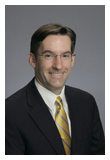2005 Metcalf Award Winners
Akihiro Kanamori
Learning and understanding concepts of higher mathematics can be frustrating. With his knowledge, patience, passion, and wit, Professor Akihiro Kanamori can make it enchanting. A brilliant mathematician and an authority on the history of set theory, the science of the infinite numbers, he elegantly conveys to students both the array of complex mathematical concepts on which science is built and the personalities of the scientists who formulated them. Meantime, his courses in the philosophy of logic and of mathematics also are listed for graduate credit in the Philosophy Department.
It is Kanamori’s methodical teaching method that draws consistent praise from his students. “Professor Kanamori presents difficult concepts in a patient, careful manner, sure to follow the most succinct notation and precise path toward the final solution,” said one. He added, “If he senses confusion, he will reiterate his method, or modify it so slightly that it becomes clear to perplexed students while reinforcing the idea to the already understanding students.” In appreciation of this scholar’s pragmatism, another student said, “Professor Kanamori understands that if people do not understand the material being covered then it is essentially useless to them.” And in a more personal sense, still another student described him as “a wise grandfather; one who can make the simplest things sound profound and the most elaborate things seem crystal clear.”
Author of countless professional journal articles and the book The Higher Infinite, Perspectives in Mathematical Logic, Kanamori joined the Boston University faculty in 1982 after holding positions at the University of California at Berkeley, Harvard University, and Baruch College of the City University of New York. He has twice held visiting professorships at Hebrew University of Jerusalem. He earned a bachelor of science degree from the California Institute of Technology in 1970 and a doctorate from the University of Cambridge, King’s College, in 1975.
John Straub
 A childhood passion about rockets led Professor John E. Straub on a career path to becoming a pre-eminent research scientist recognized internationally for studies in theoretical and computational chemistry and biophysics. But while the Chemistry Department professor focuses on teaching undergraduates at all levels and guiding doctoral students in research, he keeps that passion alive by teaching rocketry to local elementary school students and mentoring high school interns. His gift is the ability to simplify complex scientific principles for students at any level and to tap their enthusiasm for learning.
A childhood passion about rockets led Professor John E. Straub on a career path to becoming a pre-eminent research scientist recognized internationally for studies in theoretical and computational chemistry and biophysics. But while the Chemistry Department professor focuses on teaching undergraduates at all levels and guiding doctoral students in research, he keeps that passion alive by teaching rocketry to local elementary school students and mentoring high school interns. His gift is the ability to simplify complex scientific principles for students at any level and to tap their enthusiasm for learning.
At each level of teaching, compliments on Straub’s “enthusiasm” abound. In a typical accolade, one undergraduate said, “Although I personally am not too fond of chemistry, Straub’s enthusiasm for the subject was infectious.” According to a former doctoral student, “John’s lecturing style embodies a contagious enthusiasm that reinforces the clarity with which he presents ideas.” And his department chair said, “John’s philosophy is that 80 percent of good teaching is the work of generating enthusiasm for the subject matter in his students, so that they are motivated to do the hard work of mastering the subject.” Beyond the style and the science, however, is a personal manner that Straub presents as a model. As a former Ph.D. student, now a university professor, explained it: “I owe to him the entirety of my outlook toward my profession in general, since Professor Straub is also teaching his students deontological values such as collegial respect, correctness and, to put it in his own words, properly ‘giving credit where credit is due.’”
An innovative educator, Straub has helped shape the general chemistry curriculum at Boston University and developed graduate courses, including a summer writing course for doctoral students to hone proper composition skills while considering ethical issues such as plagiarism and academic conduct. He joined the Boston University faculty in 1990 after earning a bachelor of science degree from the University of Maryland in 1982, two masters degrees and a doctorate in chemical physics from Columbia University, and completing a National Institutes of Health postdoctoral fellowship in biophysics at Harvard University. He was the 2003 recipient of the Gitner Award for Distinguished Teaching from the Boston University College of Arts and Sciences.
